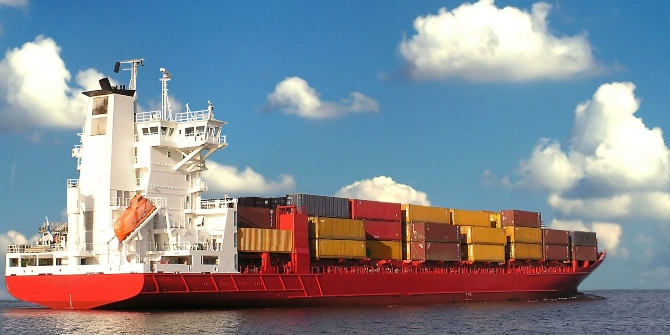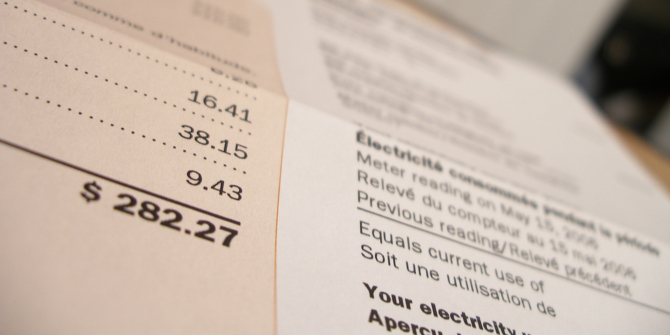
The opinion on the benefits of free trade, and of multilateral agreements, which are free trade’s preferred policy companion, has changed through history. After having enjoyed some decades of favour, the support to multilateralism (and free trade) seems to be declining. The theoretical premise that the free market equilibrium is efficient is the basis for multilateralism. Economists learn in their first micro course that market allocative efficiency can be achieved only if relative prices perfectly map their relative marginal costs of production. In the original versions of the theory supporting market efficiency this result was achieved thanks to the assumption that markets are perfectly competitive. In absence of market power, all firms price at marginal cost so that the price ratios equal the cost ratios and there is, therefore, no room for improving the allocation of resources across firms and countries through policy intervention.
As the relevance of monopolistic power was recognised, trade economists mostly used models based on monopolistic competition, where firms derive their market power from product differentiation and the complications from strategic interaction are not considered. With some surprise, they still found that free trade is the best multilateral trade policy as the free market equilibrium continues to be efficient. This holds as far as firms’ markups are constant across firms, as in this case relative prices still map relative marginal costs. Accordingly, assumptions that guarantee constant markups, basically also support the original insight that free trade allows governments to attain (constrained) efficiency irrespective of technological or geographical differences across countries, despite the presence of market power.
But what happens of the efficiency of multilateral free trade in a world in which market power and markups are changing asymmetrically between large and small firms? Our new paper argues that, in such a world, free trade, though still better than autarchy, is not necessarily efficient so that global prosperity requires even stronger multilateral cooperation.
Indeed, under monopolistic competition, free trade is inefficient if one is willing to accept Marshall’s Second Law of Demand, which says that larger, more productive firms can charge higher markups than smaller, less productive ones. This feature is both theoretically and empirically appealing. In this case, allocative efficiency is violated: the ratio of prices of more productive firms to the prices of less productive firms is larger than the ratio of their respective marginal costs and firms that are more productive leave a larger-than-optimal market share to less productive firms.
This implies that a larger amount of productive resources than optimal is used to produce low productivity goods. Such misallocation is stronger when the intensity of competition, defined for example as the elasticity of profits to marginal cost, the Boone indicator, is weaker. The Boone indicator in our case improves when tougher competition increases the profitability of lower cost firms relative to higher cost ones, leading to a more efficient allocation of resources. This implies that the inefficiency of free trade is more pronounced for countries that we call ‘disadvantaged’ and feature smaller domestic market size, worse state of technology in terms of higher innovation and production costs, and worse geographical situation in terms of less proximity to other trade partners.
Therefore, we show that in each country free market is not selective enough so that the number of producers and the number of goods sold can be too large. The selection inefficiency is particularly severe for disadvantaged countries, which are the least efficient. Moreover, the free market offers a product mix with fewer low-cost varieties than optimal. This inefficiency applies also to exports and free trade magnifies it as households around the world tend to consume excessive levels of goods produced in far locations instead of goods produced nearby or locally. This inefficiency is more pronounced for disadvantaged countries, as they are more distant from their trade partners.
Given that the free market outcome is not efficient, there is room for welfare improving trade intervention. However, the best efficiency-enhancing policies are quite complex: they need to increase (decrease) the sales of low (high) cost firms to all countries, but especially to disadvantaged ones, and reduce firm entry in all countries, but especially in disadvantaged ones. In other words, in order to obtain full efficiency, the authorities need to use two firm- and location-specific tools: first, multilaterally agreed per-unit subsidies (tariffs) are needed to promote (curtail) the sales of low (high) cost firms, especially in countries in the periphery of the trade network. Second, lump-sum taxes on profits are needed to discourage excessive market entry, especially in disadvantaged countries. Interestingly, multilateral policy intervention can improve on free trade, without reaching full efficiency, even using country-specific instruments, for example, using a per-unit country-specific trade subsidy common to all firms selling in its market and a lump-sum profit tax common to all its producers.
However, countries have the usual incentive to deviate unilaterally from the efficient policies to improve their terms of trade so that binding multilateral agreements are needed to support such policies. Indeed, each country has an incentive to reduce the number of its producers by a higher tax on profits in order to make them export at monopoly price. At the same time, each country has an incentive to use per-unit subsidies in order to induce marginal-cost pricing for imports and domestic sales.
To conclude, international economists in general support the view that free trade is the efficient multilateral trade policy. We show that, if market power is asymmetric between large and small firms, there are policies that can increase global welfare with respect to the free trade outcome. These policies promote the sales of low-cost firms and trim the sales of high cost firms, in particular in disadvantaged countries. Those policies require multilateral agreements that are strictly enforceable. State aid policies within the European Union can be seen as one example of that. While rising firm market power may weaken the argument in favour of laissez faire, it nonetheless reinforces the case for multilateral policy cooperation.
♣♣♣
Notes:
- This blog post is based on the authors’ Geography, Competition and Optimal Multilateral Trade Policy, CEP discussion paper No 1610
- The post gives the views of its authors, not the position of the European Commission, LSE Business Review or the London School of Economics.
- Featured image by hectorgalarza, under a Pixabay licence
- Before commenting, please read our Comment Policy
 Antonella Nocco is an associate professor of economics at the University of Salento. She holds a PhD in economics from the University of Pavia and conducted post-doctoral research at the Center for Operations Research and Econometrics (CORE) of the Université Catholique de Louvain. She received her degree in economics from the Università Cattolica del Sacro Cuore in Milano.
Antonella Nocco is an associate professor of economics at the University of Salento. She holds a PhD in economics from the University of Pavia and conducted post-doctoral research at the Center for Operations Research and Econometrics (CORE) of the Université Catholique de Louvain. She received her degree in economics from the Università Cattolica del Sacro Cuore in Milano.
 Gianmarco Ottaviano is professor of economics at Bocconi University, Italy, and an associate at LSE’s Centre for Economic Performance Trade Research Programme. His research interests include international trade, multinationals, economic integration, immigration and economic geography. He holds a PhD in economics from the Catholic University of Louvain, Belgium.
Gianmarco Ottaviano is professor of economics at Bocconi University, Italy, and an associate at LSE’s Centre for Economic Performance Trade Research Programme. His research interests include international trade, multinationals, economic integration, immigration and economic geography. He holds a PhD in economics from the Catholic University of Louvain, Belgium.
Matteo Salto works at the European Commission (DG ECFIN). He is currently deputy head of the unit working on monetary policy, exchange rates and access to euro. Previously, he was deputy head of the unit working on fiscal policy, where he was the editor of the Public Finances in EMU report (between 2011 and 2017).





